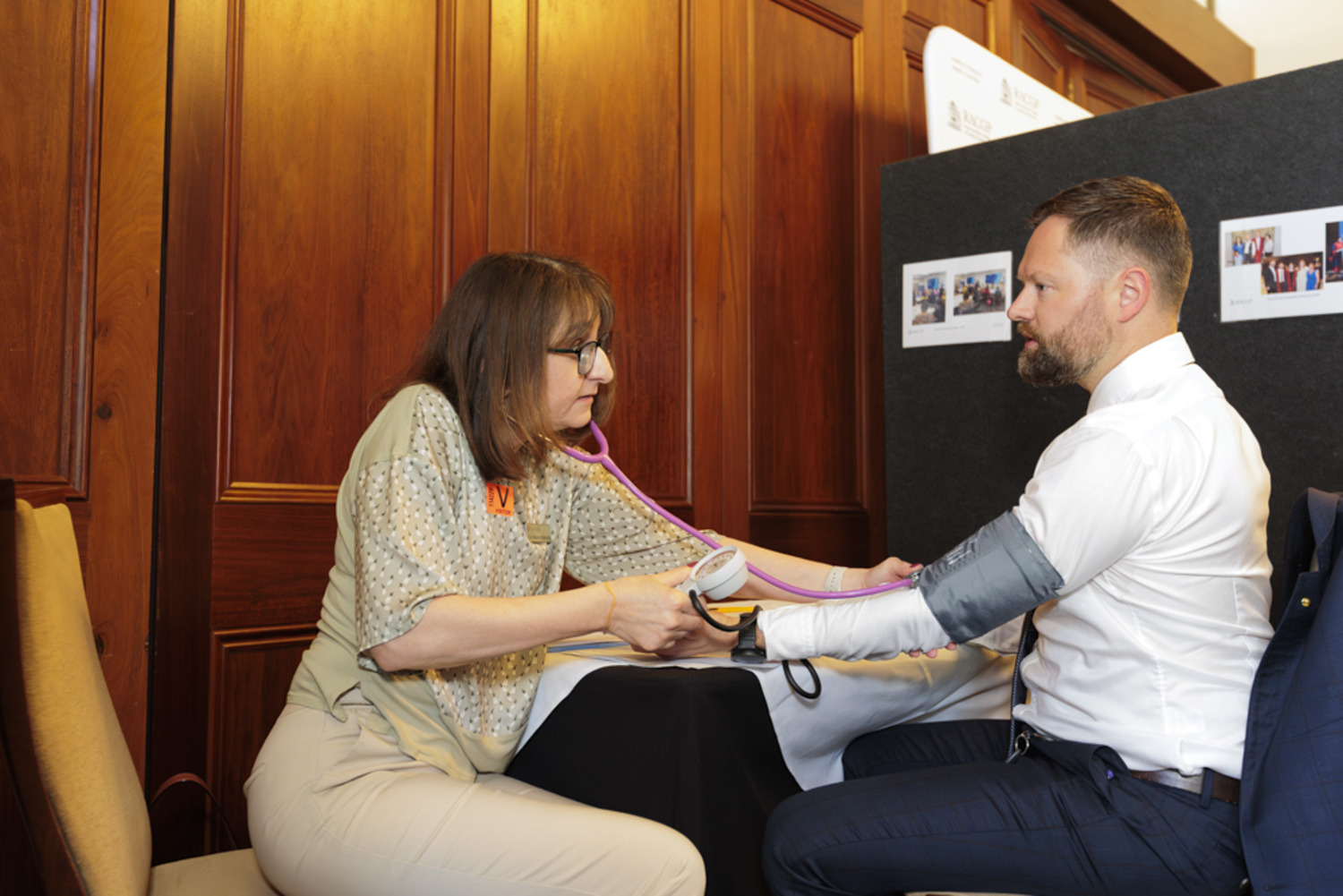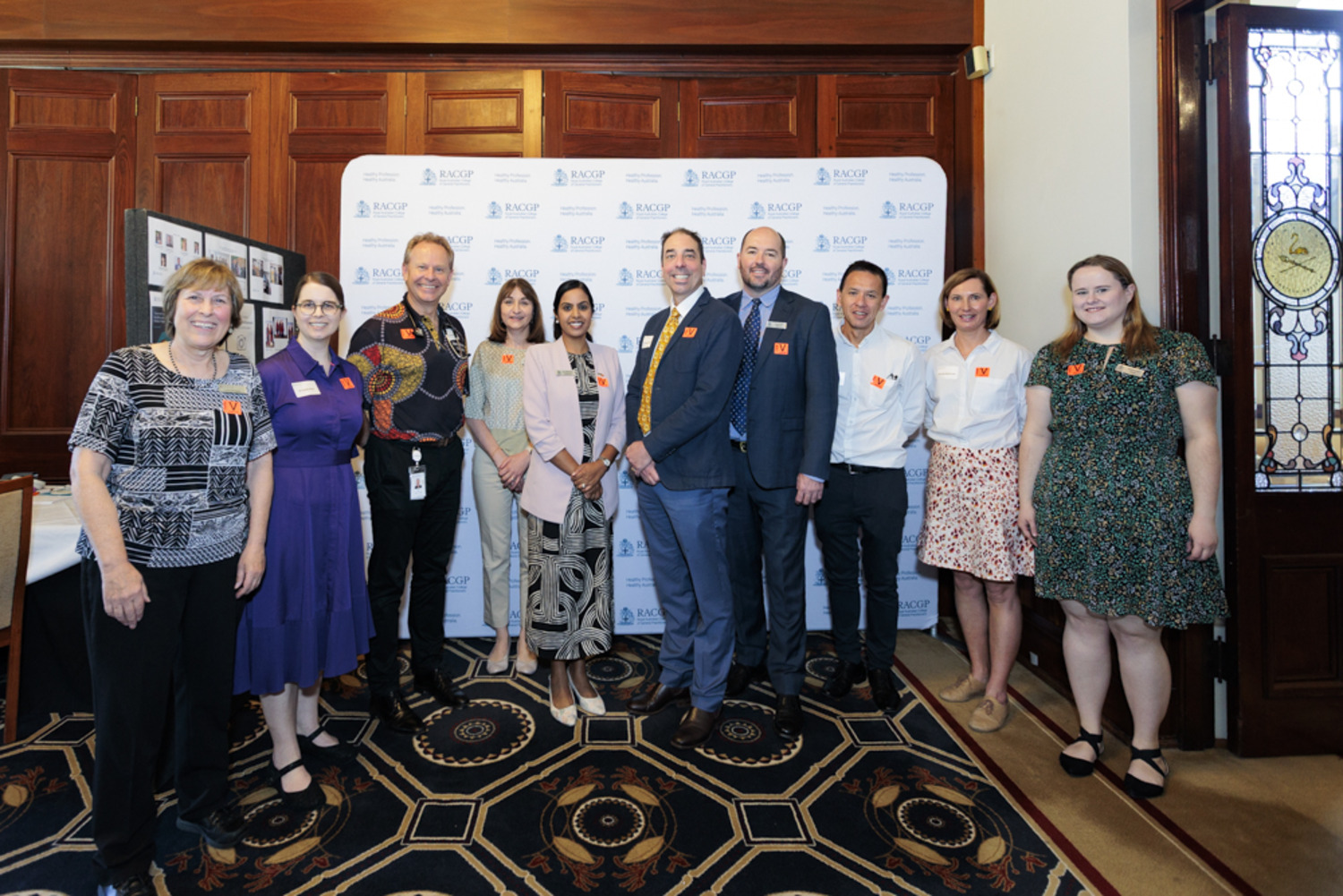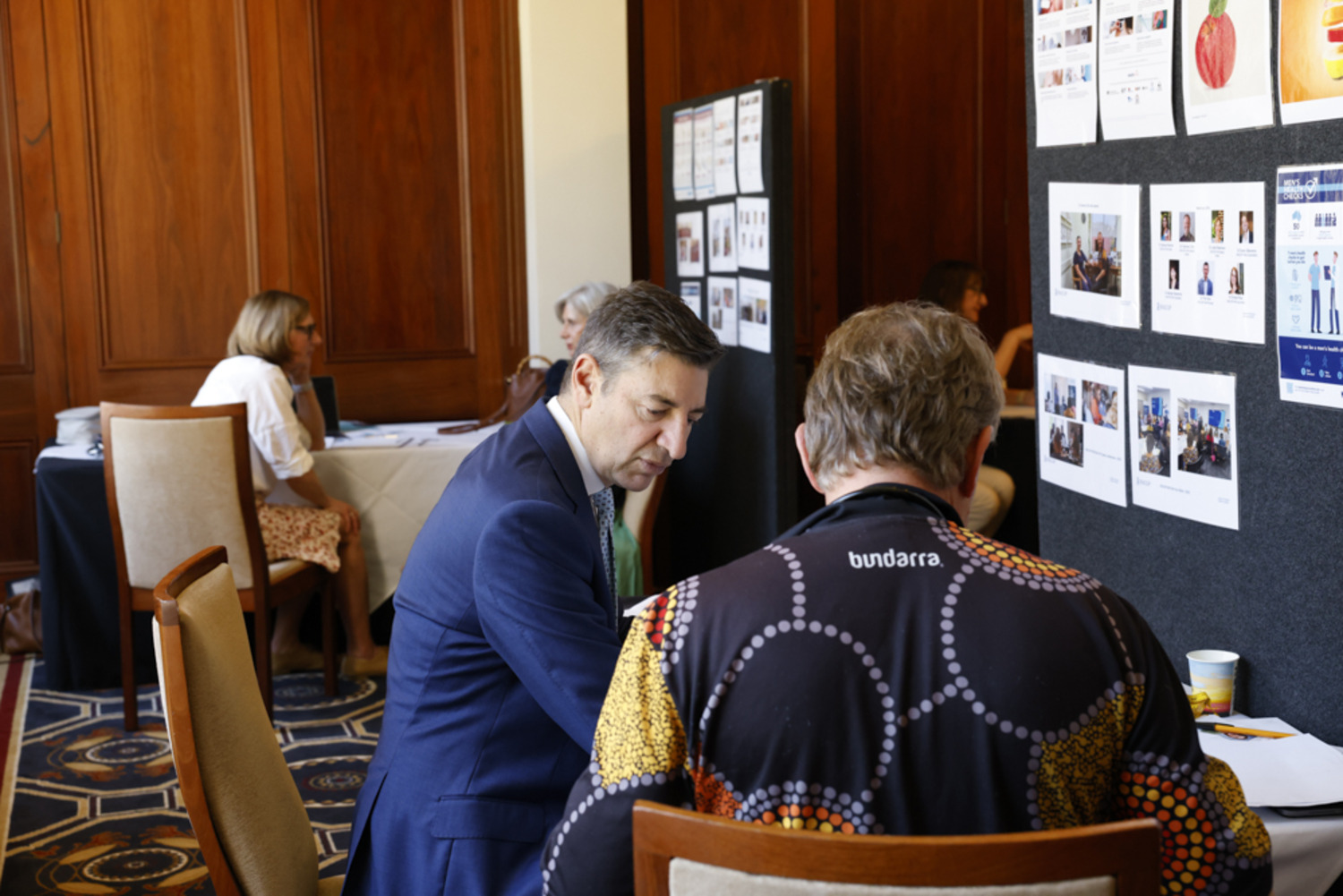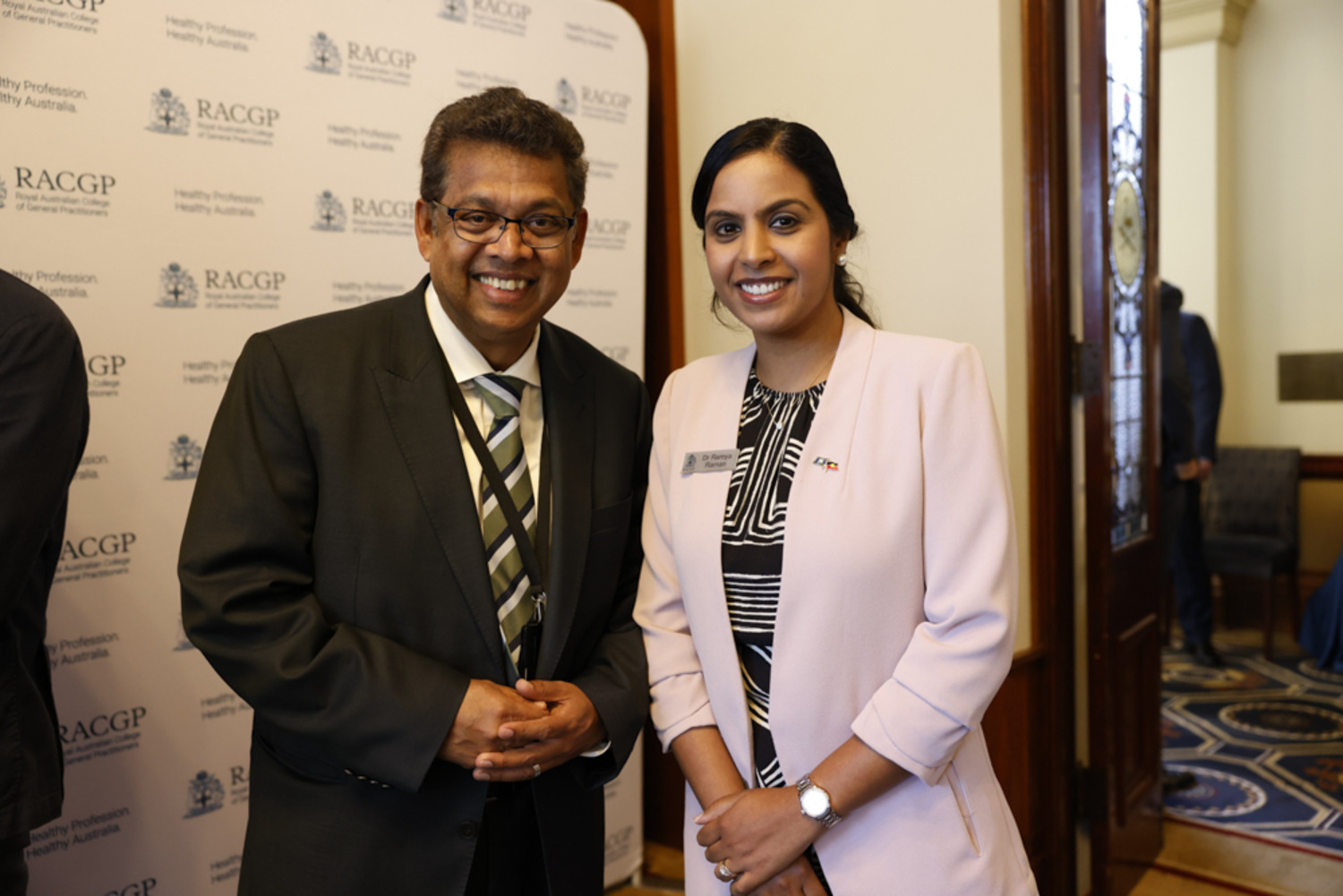
A delegation of GPs converged on the steps of Parliament to outline the steps they want the WA government to take to ease strain on the hospital system.
RACGP Vice President and WA Chair Dr Ramya Raman was among the doctors who took a plan to help reduce ramping and hospitalisations to the state’s decision makers on October 14.
“Our message is that GPs can reduce pressure on the rest of the system,” Dr Raman said.
The GPs were there to offer politicians health checks for both themselves and the state’s healthcare system, while offering solutions to its challenges.
They are calling for four key measures which they say would reduce hospital readmissions, allow more people to receive non-urgent care after hours, boost protection from harmful viruses and reduce hospital admissions.
“There are issues across the health system, but with relatively small investments, WA’s GPs can alleviate a lot of the challenges in our hospitals,” Dr Raman added.
The first measure would be to incentivise a GP consult within a week of a patient leaving hospital.
Health data showed when a patient had an unplanned hospital admission, their chance of being readmitted was significantly lower if they saw a GP soon after.

“Up to one in seven hospital discharges results in an unplanned readmission within 28 days,” Dr Raman said.
“Imagine how much extra hospital capacity we would have if we reduced readmissions by giving more people access to follow-up care from a GP who knows them, not to mention how much stress we could save patients and families.”
RELATED: The biggest issues facing Australia’s GPs
Dr Raman and her colleagues also called on the government to allow more people to receive non-urgent, routine care from their GP after hours by providing funding to cover extra costs including staffing.
“With adequate funding, practices can also help by staying open later,” she said.
“There were 350,000 potentially avoidable presentations to emergency departments for issues that could have been managed by GPs last year, and 60% of people have accessed after-hours care in the last five years.
“Introducing After-Hours GP Grants would offset the extra costs for staying open and mean more of our patients can see their GP on weeknights and weekends, especially for essential, but non-urgent, appointments.”

The third measure is for expanded access to free immunisations, specifically for RSV and meningococcal B.
“Meningococcal B is no less deadly than strains for which vaccination is free,” Dr Raman said.
“Yet families face a prohibitive cost of around $200 a dose for a MenB vaccine. South Australia’s publicly funded vaccination program cut Meningococcal B rates among babies by 73%, and by 76% amongst adolescents.”
RELATED: RSV vaccinations for WA babies to remain free for another year
The RACGP also wants the government to appoint a Chief GP Advisor to improve hospital and primary care collaboration, break down healthcare silos, improve patient outcomes, and reduce hospital admissions.
“Appointing a Chief GP Advisor would help the WA government identify local opportunities to make our health system more effective, efficient, and patient-centred,” Dr Raman said.
“Our healthcare system can work better; it’s just a matter of putting systems in place.
“The WA government is responsible for hospitals, and the Federal Government for primary care. That results in a siloed system with missed opportunities for patients to access the right care at the right time.”

Health Minister Meredith Hammat told Medical Forum she is in regular discussions with stakeholders, including the RACGP, to work together to ease pressure on the state’s healthcare system.
While the Minister did not respond directly when asked if the WA government was doing enough to reduce ambulance ramping and hospitalisations she said: “Our GPs play a critical role in our health system.”
Ms Hammat did not respond to questions on whether the government would take action on the four points raised by the College.
“We continue to work with the Federal Government to increase the number of GPs in our state at a time of national shortage,” she said.
Action from the RACGP follows the formation of an unprecedented alliance of health worker unions in WA, including the AMA (WA) and the United Workers Union, to demand the state government take specific actions to tackle pressures in hospitals.
RELATED: Call to action amid record ambulance ramping and pressure on hospitals
United Workers Union public sector co-ordinator for WA Lisa Judge said members had been invited to meet with the Department of Health as it develops next year’s plan to reduce ramping.
“Two weeks on from the alliance of health unions calling for action on five key reforms, we’ve seen some early signs of progress — particularly around workforce planning and aged-care capacity — but there’s still a long way to go,” she said.
Want more news, clinicals, features and guest columns delivered straight to you? Subscribe for free to WA’s only independent magazine for medical practitioners.
Want to submit an article? Email editor@mforum.com.au

